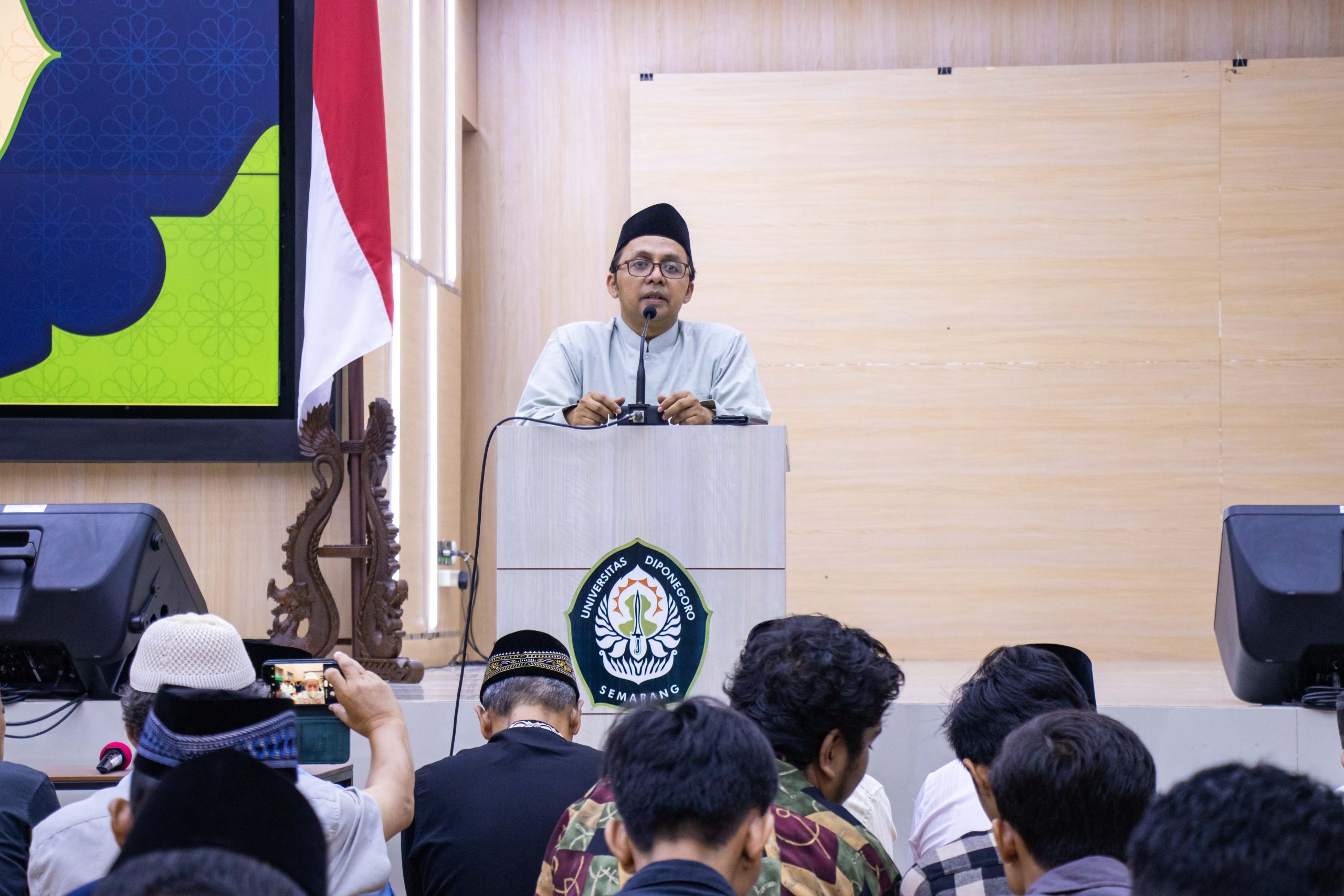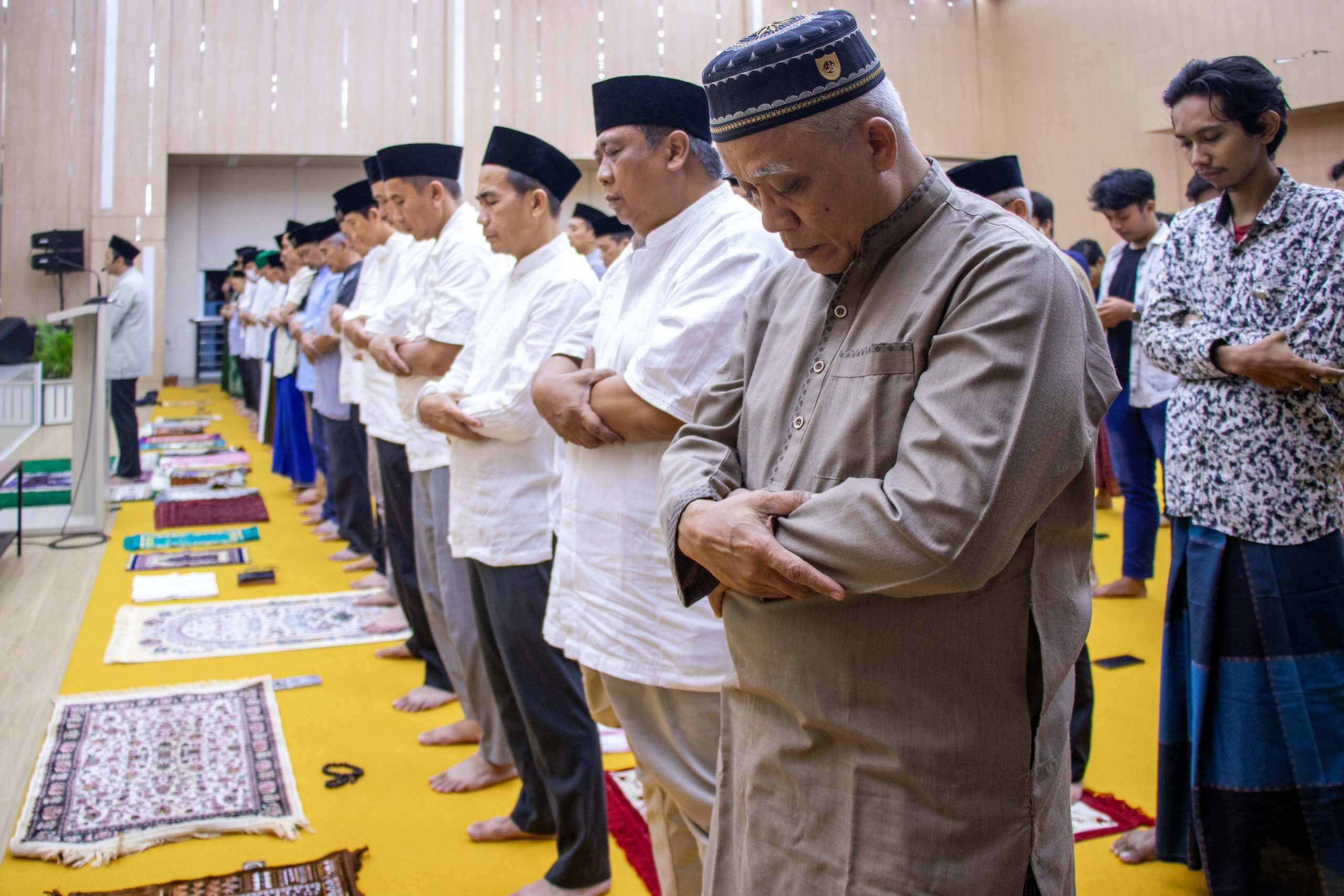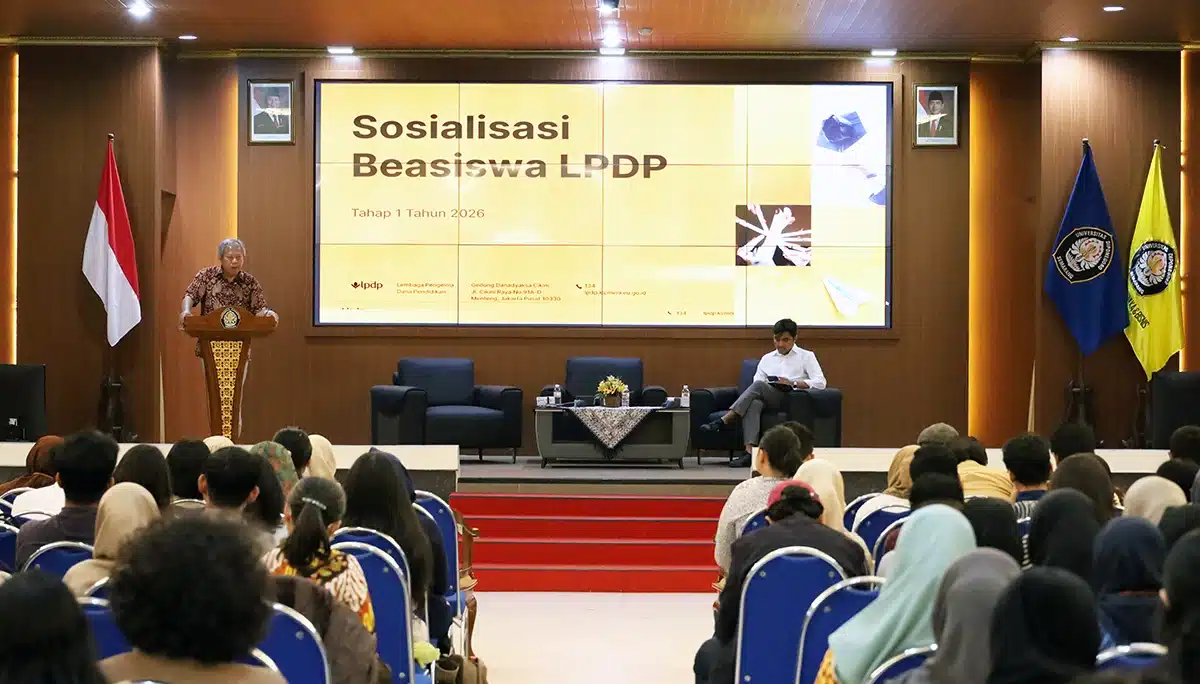The Faculty of Engineering at Diponegoro University had the opportunity to host the Joint Tarawih (Tarawih Keliling/Tarling) in Ramadan 1445 H for the academic community and the extended family of UNDIP (19/3). The tarawih prayer activity, which included inviting the chairman of the Nahdlatul Ulama Scholars Association (ISNU) of Central Java, Dr. Fakhruddin Aziz, Lc, M.A., took place in the Engineering Hall on the 5th floor of the Prof. Ir. Eko Budihardjo, M.Sc. Building (Dean Building of the Faculty of Engineering).
Prof. Dr. Jamari, S.T., M.T., the Dean of the Faculty of Engineering, in his welcoming remarks after the witr prayer, advised, “Learn manners before learning knowledge.”
UNDIP Vice Rector for Resources Prof. Dr.rer.nat. Heru Susanto, S.T., M.M., M.T., as the host, expressed his appreciation for the invited guests’ presence and the congregation of the tarawih prayer. “I would like to express my gratitude to the educational staff of the Faculty of Engineering at UNDIP who have prepared the Joint Tarawih event so well. Hopefully, it will be a reward for everyone,” said Prof. Heru.
In his lecture on the theme “Technological Progress in the Golden Age of Islam,” Dr. Fakhruddin Aziz, Lc, M.A., explained that Allah Subhanahu Wa Ta’ala has provided extraordinary narratives in the Qur’an regarding technological development.
The first verse revealed by Allah, “Iqra, read, learn, innovate, conduct research, but do not stop there. Bismirabbikalladzi kholaq, for your reading, innovation, and research, results must be in the name of your Lord. So, in this verse, there is a legitimacy to fear Allah and submit obediently to His commands. It means that the fear of God becomes the foundation of knowledge for our children,” he explained.
Manners include, above all, ethics and morality in the presence of Allah Subhanahu Wa Ta’ala. When we see students becoming knowledgeable, having many references and theories, if knowledge does not make them more afraid of Allah, then the fear of Allah is the beginning of knowledge. It is the secret of technological advancement in the golden age.
The leadership of Umar Bin Khattab was the starting point for the revolution of thought within the Islamic world. From the formation of cabinets to the golden ages of both the Umayyad and Abbasid dynasties, there were many innovations, all rooted in the fear of Allah as the foundation of faith and spirituality, enabling Muslim scholars to achieve remarkable accomplishments.
“This can be seen in Muslim scholars such as Al Kindi, Al Farabi, Ibn Sina, Al Khwarizmi, and one of them, Al Jazari, who invented the world’s first robot that initially recited blessings upon the Prophet Muhammad and performed Tahajjud every night. When Ibn Sina mixed ingredients and discovered medicine, he always recited tasbih – Subhanallah, and even when combining one substance with another, including conducting experiments, he always conducted istikharah prayer. It’s not just their brilliance in creating technology but making faith in Allah and strengthening spirituality the foundation of everything,” he continued.
In that golden age, figures such as geologists, robot experts, medical experts, and others had one thing in common: their spirituality laid the groundwork for inspirations guided by Allah, making their knowledge beneficial.
The current issue is the crisis of spirituality in every achievement obtained by scientists. The key to why so many scientists emerged during the golden age is that they first made Allah their orientation. Secondly, the achievements of scientists worldwide are remembered throughout time because they dedicated everything to seeking Allah’s pleasure, thus bringing blessings and grace from Allah Subhanahu Wa Ta’ala.
“In general, let us emulate that the achievements of scientists worldwide, such as Al Jazari, Al Kindi, Ibn Sina, Al Khwarizmi, Al Farabi, Al Jabr, and others, converge at one point: spirituality becomes the foundation of the innovations they made. If we look at the Unity of Sciences slogan, Wahdatul Ulum, the unity of knowledge between humanities and sciences, isn’t this the strength of ‘Iqra Bismirabbikalladzi kholaq’ that our innovations become an additional motivation by bringing Allah into every innovation, hopefully providing value in our lives,” concluded Dr. Fakhruddin. (DHW/Public Relations)











